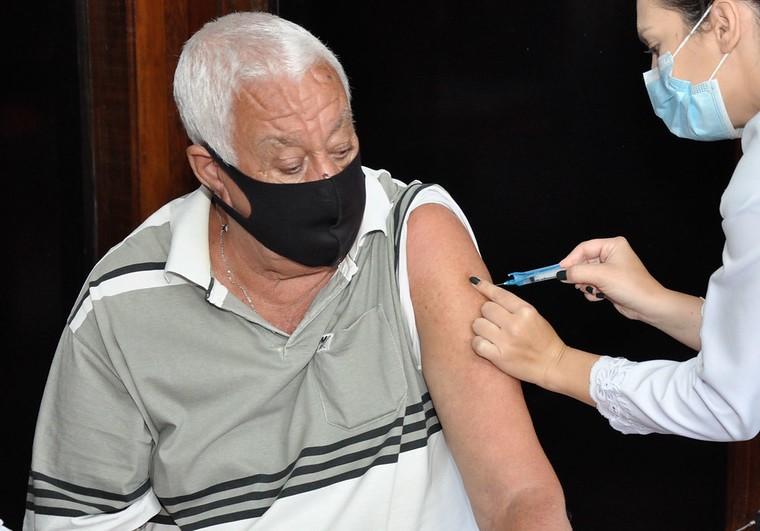With 5.2 million COVID-19 cases reported last week, the world set a new weekly high, with activity rising for the eighth week in a row, the head of the World Health Organization (WHO) said today.
Much of the rise came from a worsening surge in India, the world's second most populous country.
In other developments, the WHO COVID-19 emergency committee weighed in with updated recommendations today, and new efforts were announced to support vaccine equity and youth involvement in the pandemic battle.
'Big numbers can make us numb'
At a WHO briefing today, Director-General Tedros Adhanom Ghebreyesus, PhD, said deaths rose for a fifth straight week and passed 3 million. "Big numbers can make us numb. But each one of these deaths is a tragedy for families, communities, and nations," he said.
Another trend is that illnesses and hospitalizations in people ages 25 to 59 are rising, possibly from more transmissible variants and increased social mixing, Tedros said.
Also today, the WHO's COVID emergency committee announced results from its seventh meeting to discuss the latest developments, which was held virtually on Apr 25. The group meets every 3 months or more often as needed. Its last meeting was on Jan 14.
As expected, committee members said the pandemic still constitutes a public health emergency of international concern (PHEIC) under International Health Regulations. They also made several recommendations for the WHO and member countries, such as encouraging the WHO to promote equitable vaccine access and to continue monitoring vaccine safety signals.
The experts also pressed countries to prioritize vaccination for vulnerable groups, hold off on proof of vaccination for international travel until key questions are answered about the role of vaccines in reducing transmission, and refine response strategies based on evidence-based WHO guidance.
Greta Thunberg boosts youth involvement
Greta Thunberg, a Swedish teen known for her climate and environmental activism today announced that the Greta Thunberg Foundation will donate $120,000 to the WHO Foundation to support the purchase of vaccines for COVAX, the WHO-led program to ensure vaccine equity.
At the WHO's briefing today, the 18-year-old Thunberg said that, similar to climate change, vaccine inequity is a global problem and requires a global solution.
When asked if teens in developed countries should pass up vaccination to make a statement about vaccine equity, she urged them to accept immunization when offered and noted that her message about vaccine equity is mainly targeted to national leaders who have the tools and means to support more equitable rollout across the world.
In another youth-based development, the WHO, Thunburg, and youth leaders launched a program called Global Youth Mobilization armed with an initial $2 million from the COVID-19 Solidarity Response Fund to support actions led by young people to tackle problems their communities face, both during and after the pandemic.
The program and funding comes ahead of a virtual Global Youth Summit and an accelerator program to boost the most promising solutions.
In other vaccine developments, the WHO on Apr 16 called on makers of mRNA vaccines to contribute their technology and expertise to a central hub and for vaccine makers in lower- and middle-income countries to consider adopting the technology. At today's briefing, Tedros said, "We have seen incredible innovation in science; now we need innovation to ensure as many people as possible benefit from that science."
India cases soar to new heights
India's latest COVID-19 surge continues to worsen, and yesterday the country reported more than 273,000 cases, with officials announcing a 6-day lockdown for New Delhi, the capital, according to Reuters. The city of more than 20 million people now has fewer than 100 intensive care unit beds available.
President Narendra Modi is facing criticism from the public over allowing crowds to gather at political rallies and for allowing a large Hindu religious gathering to take place, with the sharp spike in cases leading to overwhelmed health systems and oxygen shortages.
In other global headlines:
- In neighboring Pakistan, hospitalizations are surging, triggering oxygen shortages, according to the Washington Post.
- The University of Oxford today announced a human challenge trial to assess reinfection in healthy younger adults. The first phase of the trial will launch this month, with a goal of establishing the lowest dose that triggers infection. The second phase, projected to start in the summer, will look at baseline immune response then reinfection to better assess what kind of immune response protects against reinfection.
- The Philippines ended its restriction on the AstraZeneca-Oxford vaccine in people younger than 60.
- Australia and New Zealand opened their travel bubble, which allows quarantine-free flights between the two nations.
- The global total today climbed to 141,680,318 cases, and 3,024,235 people have died from their infections, according to the Johns Hopkins online dashboard.




















